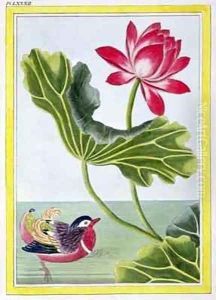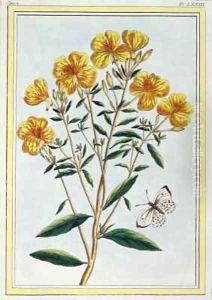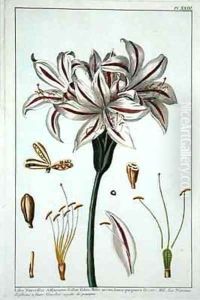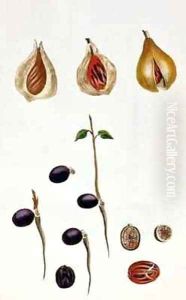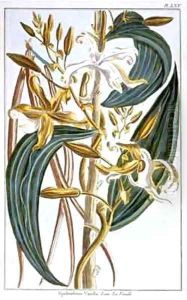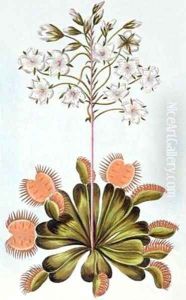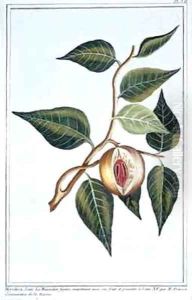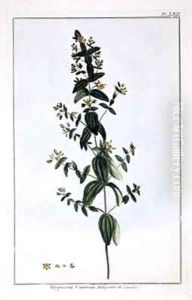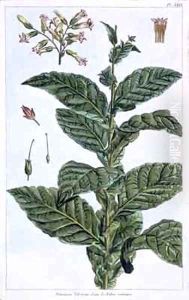Pierre-Joseph Buchoz Paintings
Pierre-Joseph Buchoz was a French naturalist, physician, and prolific author, particularly known for his botanical works. Born on January 27, 1731, in Metz, France, Buchoz initially pursued a career in medicine and became a doctor, which allowed him to explore his interest in the natural sciences.
Despite his medical background, Buchoz's primary passion lay in the study of plants. Over the course of his life, he published a significant number of books and collections on botany, horticulture, and natural history. One of his most notable achievements was the publication of 'Histoire Universelle du Règne Végétal' (Universal History of the Vegetable Kingdom), which was issued in multiple volumes between 1775 and 1789. He was also responsible for 'Collection des Fleurs et des Fruits,' another extensive work that focused on the visual depiction of plants and fruits.
Buchoz's publications were known for their beautiful illustrations, which were often created by leading artists of the time and contributed to the dissemination of botanical knowledge. However, his work was not without criticism; some contemporaries accused him of plagiarism and inaccuracy, and his haste to publish sometimes led to errors and a lack of scientific rigor.
Nevertheless, Buchoz's contributions to the field of botanical literature were significant for their scope and the attention they drew to plant diversity. His collections of natural curiosities and illustrations provided valuable resources for both scientists and enthusiasts of the natural world.
Pierre-Joseph Buchoz continued to write and publish until his death on January 13, 1807. Despite the controversies surrounding some of his work, his dedication to the field of botany and his efforts to catalog and describe the plant kingdom left a lasting impression on the botanical literature of the late 18th and early 19th centuries. His books remain a testament to the Enlightenment's drive to classify and understand the natural world.
